November 8 - Zenoss necessary tool for a hybrid IT environment
2018-11-04Topic: Zenoss necessary tool for a hybrid IT environment
Presenter: Chris Freeman
When: Thursday, 08 November 2018 - 6:45pm to 9:00pm
Where: NCSU College of Textiles, 1020 Main Campus Dr., Room 2207
Parking: Underground parking deck immediately adjacent to the building (see map)
Map: Google Maps
Meetup: https://www.meetup.com/trilug/events/255742959/
Video:
Slides:
Summary
IT is evolving. It isn't a rack of servers and network devices anymore. It doesn't have the traditional administrative roles any more. Why would we continue to use traditional monitoring? As more advanced solutions evolve, so must we. Zenoss started as an open-source project, and has evolved into a necessary tool for a hybrid IT environment. Infrastructure is not what it was - we now talk about containers, orchestration, and consumption models. Applications need to be aware, and 3 9's of uptime isn't the goal - it's the standard expectation. How prepared are you to manage your portfolio in your data center? On someone else's data center? On the cloud?
Bio
Chris Freeman
joined NetApp in 2014 to assist in the transition from NetApp's previous monitoring solution to Zenoss Service Dynamics.
Previous to NetApp, he helped determine best monitoring practices and designed new monitors for a large financial organization. He developed monitoring tools for a Fortune 50 company, and redesigned the SNMP stack into a consumable API.
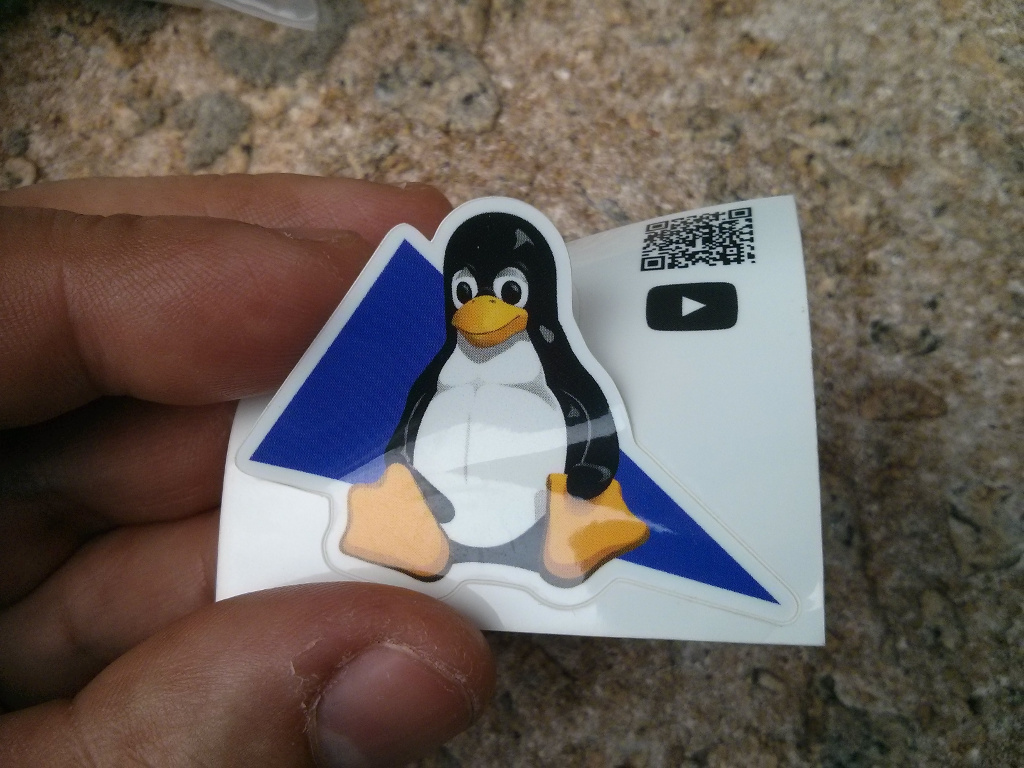 First we need to get some swag made. Specifically, stickers because everyone
loves stickers! Ours is different from everyone else here because we did put
QR codes on the part of the sticker you do not peel off. We should have made
more because as of right now (Monday 21 October 11:44am) we are down to 20.
First we need to get some swag made. Specifically, stickers because everyone
loves stickers! Ours is different from everyone else here because we did put
QR codes on the part of the sticker you do not peel off. We should have made
more because as of right now (Monday 21 October 11:44am) we are down to 20.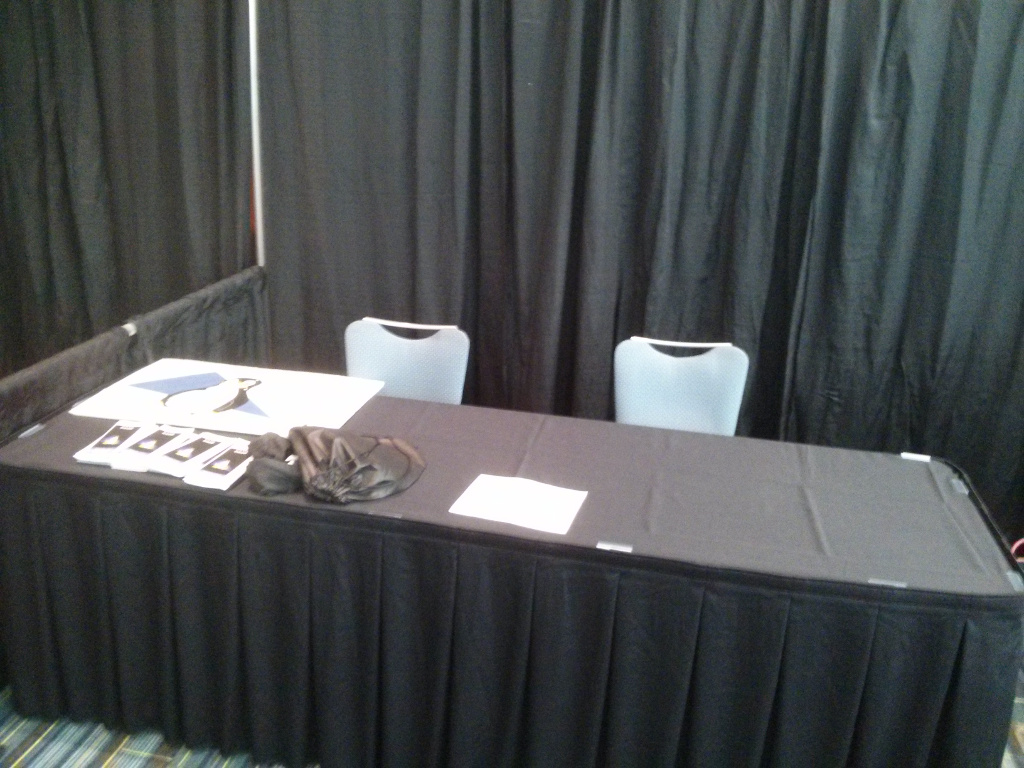 Sunday was setup day, and and the first was finding out our table location.
Sunday was setup day, and and the first was finding out our table location.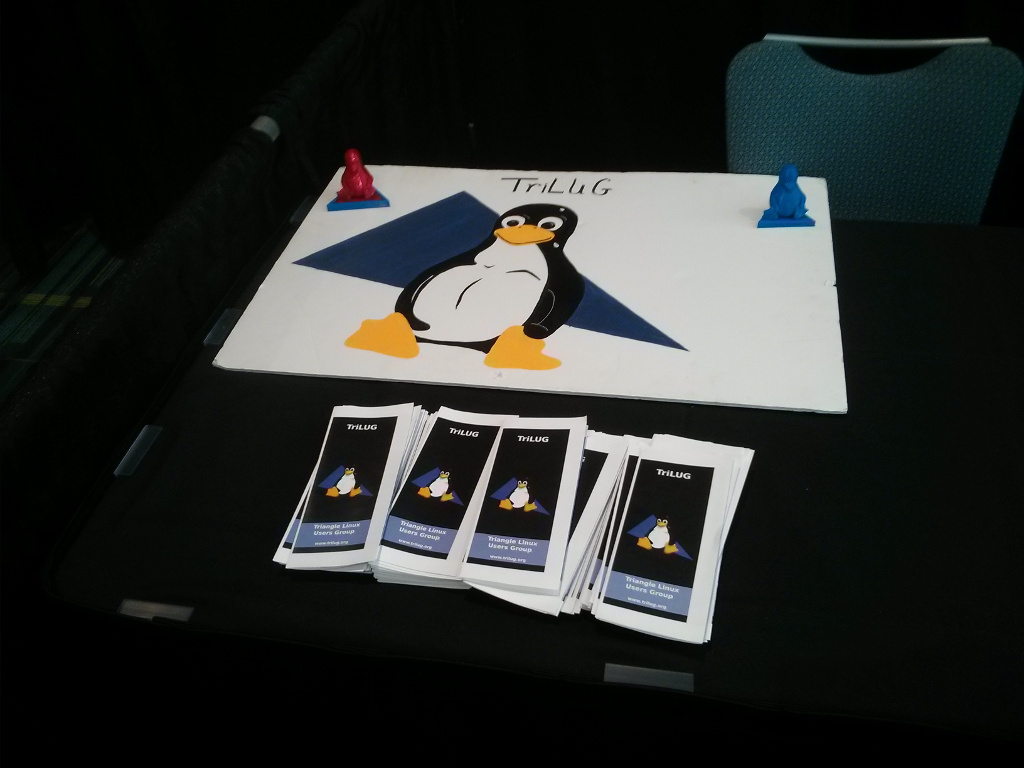 You might recognize the tux sign; it is the same one we take to every meeting.
With some of the 3Dtuxes, thanks to Brian Henning, for good measure.
You might recognize the tux sign; it is the same one we take to every meeting.
With some of the 3Dtuxes, thanks to Brian Henning, for good measure.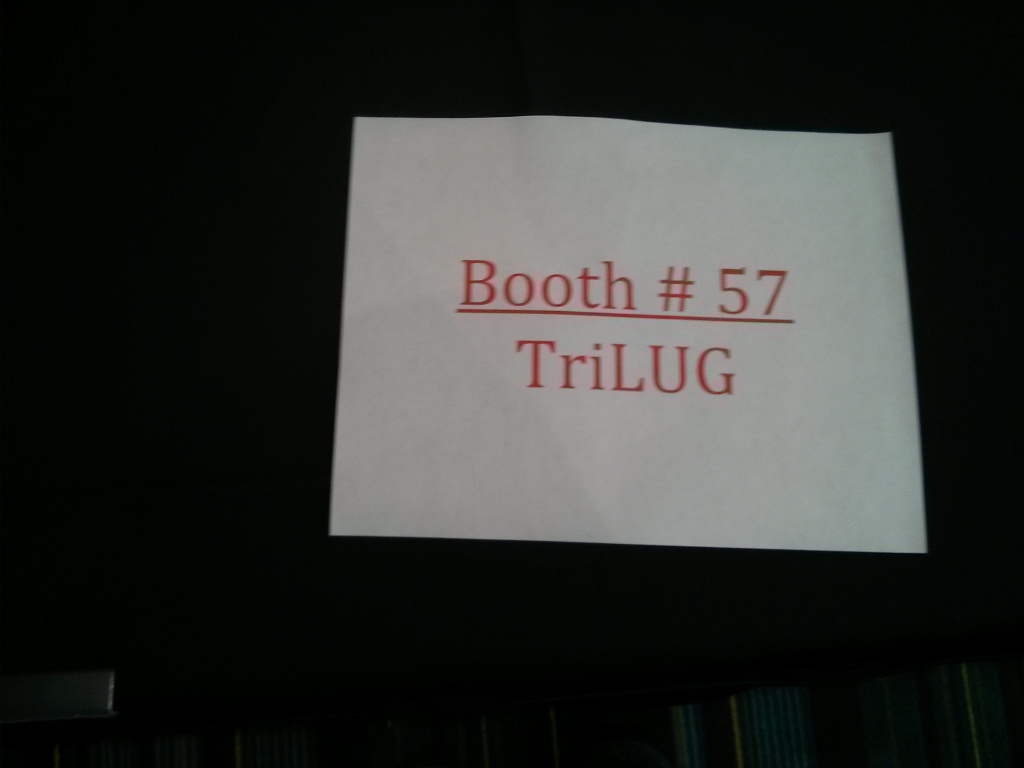
 We'll introduce the Drupal CMS and its surrounding relevant ecosystems.
We'll take a light dive into a smattering of topics and offer a Q&A
session to follow up more deeply. We'll keep it interactive -- so ask
about any subject that you wish expanded. We'll also look at a quick
tutorial on getting Drupal set up locally, so if you're interested,
bring a laptop. We have WiFi service in our meeting.
We'll introduce the Drupal CMS and its surrounding relevant ecosystems.
We'll take a light dive into a smattering of topics and offer a Q&A
session to follow up more deeply. We'll keep it interactive -- so ask
about any subject that you wish expanded. We'll also look at a quick
tutorial on getting Drupal set up locally, so if you're interested,
bring a laptop. We have WiFi service in our meeting.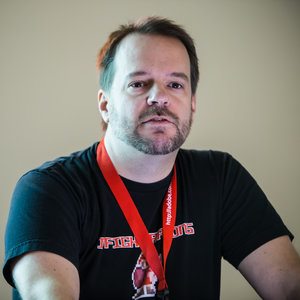 (
( Garth is a JavaScript engineer and Software Architect who has
recently found a love for public speaking. Having worked in the
JavaScript ecosystem for over a dozen years, he enjoys sharing his
experiences with others through his appearances at tech conferences,
university tech talks, and local meet up groups. In his current role
at
Garth is a JavaScript engineer and Software Architect who has
recently found a love for public speaking. Having worked in the
JavaScript ecosystem for over a dozen years, he enjoys sharing his
experiences with others through his appearances at tech conferences,
university tech talks, and local meet up groups. In his current role
at 


